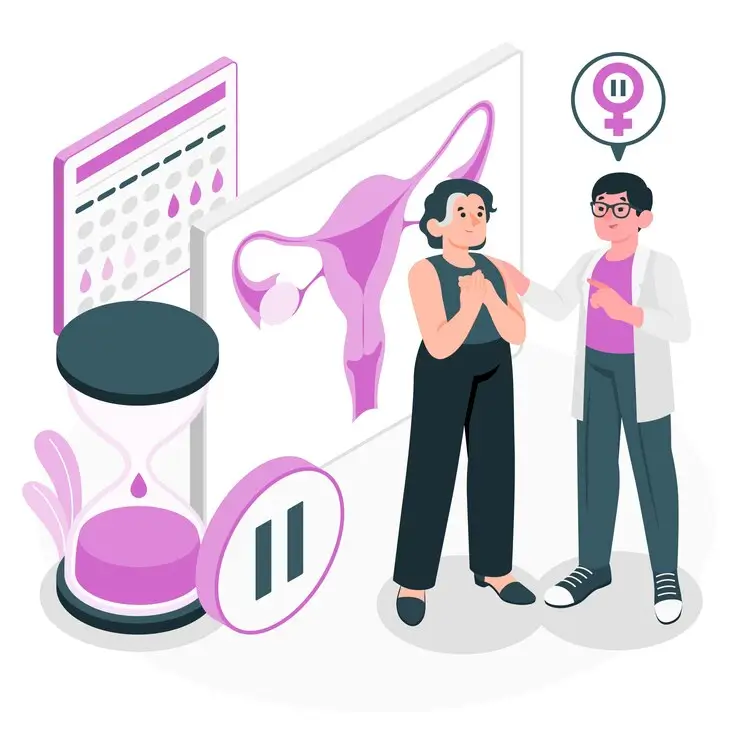Exploring Hormonal Imbalance Symptoms, Causes, Effects, and How to Regain Balance for a Healthier Life
Table of Contents
Without the hormones present, we would be unhealthy individuals. The messengers in the body help it grow; they help maintain the normal metabolic rate and even control things like emotion and pregnancy. Our body’s hormonal imbalances result in various health problems. This article discusses Hormonal Imbalance Symptoms, the reasons why it occurs, and the adverse effects it may have on health.
What is Hormonal Imbalance?
Hormone imbalance results from either an overexpression or underproduction of some hormones, thus upsetting the normal body balance. The endocrine system has many glands that produce hormones.
Some examples of these glands include the thyroid, the adrenals, the pancreas, and organs related to reproduction. The production, release and function of these hormones becomes disturbed and this leads to hormonal balance.
Hormonal Imbalance Symptoms
- Irregular Menstrual Cycles: Hormonal imbalances can cause irregular periods, heavy bleeding, no menstrual cycle or severe cramps in women and are usually as a result of PCOS or thyroid disorders.
- Mood Swings: It has also been associated with hormonal changes, particularly during menstruation which causes mood swings, anxiety, irritability, and at times, depressions.
- Weight Gain: Unexplained weight gain, especially in the abdomen, could be caused by hormonal imbalances such as insulin resistance or thyroid disorders.
- Fatigue: Persistent fatigue, low energy level, and concentration problems stem from hormonal imbalance.
- Skin Problems: For example, acne, dry skin, oily skin, or any other skin issues could be associated with fluctuating hormones, especially among adolescents and women with PCOS.
- Hair Loss: The hair may become thinner or even fall off due to unbalance of thyroid hormones or surplus androgens causing such disorders as androgenic alopecia.
- Changes in Libido: Hormonal problems may result into decreased libido, changes in sexual activities for men and estrogen/progesterone imbalance in female body respectively.
- Hot Flashes and Night Sweats: During menopause, women tend to face hot flushes and night sweats which are results of hormone alterations.
- Insomnia: Insomnia can develop as a result of hormonal disorders, stress, or menopause.
- Digestive Issues: Hormone changes may affect digestion leading to symptoms such as bloating, constipation or even diarrhea.
- Fertility Problems: Women’s hormonal imbalance can disrupt ovulation and therefore, reduce their fertility while in males, the same hormonal irregularities may lead lack of sperms which will definitely result into low number of fertility cases as well.
- Muscle Weakness: Low or out of balance levels of other anabolic hormones can also cause decreased body strength resulting in reduced muscle mass.
Common Causes of Hormonal Imbalance
- Stress: Excessive release of chronic stress-related cortisol, also called “stress hormone” will result in dysfunctional activation of various hormonal pathways leading to imbalance of bodily functions.
- Poor Diet and Nutrition: Processed food, sugar as well as unhealthy fats may trigger insulin resistance that leads to hormonal imbalance.
- Sedentary Lifestyle: It is also very important to note that inactivity can make you overweight and lead to insulin resistance which can disturb your hormonal status.
- Aging: Hormone reduction is a natural course of aging in humans. Hence this can result into disparities of hormones such as estrogen and testosterone.
- Medical Conditions: Hormones in women are affected by some medical conditions like PCOS, diabetes, or diseases of the thyroid gland.
- Medications: For some medications, such as birth control pills, one’s hormonal balance changes.
Impacts of Hormonal Imbalance
- Emotional Well-being: Mood swings, anxiety and depression in response to the imbalance of hormones may influence individual’s emotional health and overall life satisfaction highly.
- Weight Management: Endocrine disturbances connect with weight gain, raising the risk of heart disease, diabetes, and other health issues, including obesity.
Fertility and Reproductive Health: Hormonal imbalance can compromise fertility, making it difficult for a woman to get pregnant and potentially rendering her sterile or infertile.
- Bone Health: Hormonal imbalance leading to reduced bone density causes osteoporosis and fractures.
- Cognitive Function: Such hormonal upheavals can play on memory, attention spans leading to difficulties in carrying around the normal activities like work and play.
- Cardiovascular Health: Additionally, hormonal imbalances may lead to high blood pressure and unfavorable lipid profiles that cause hypertension.
- Muscle and Physical Function: Muscle weakness and loss of muscle mass can hamper physical strength and overall mobility.
Treatment and Management
Hormonal imbalance demands a proper way of treatment, which in turn targets the root cause of the situation. For example, individuals may choose to adopt healthier diets or take medication intended to control stress. Under certain circumstances, a doctor may recommend administration of hormone replacement therapy in order to re-establish equilibrium.
You need to see a doctor when experiencing signs of a hormonal problem. Blood testing enables them to accurately diagnose the problem, which they customize according to you.
Conclusion
One, hormone disturbance, is relatively simple but far from elementary since it has profound implications for our body and mental health. The first important thing to understand about hormonal imbalance is that we must know what causes it and how it occurs. You could rectify by treating the sources and consulting.
